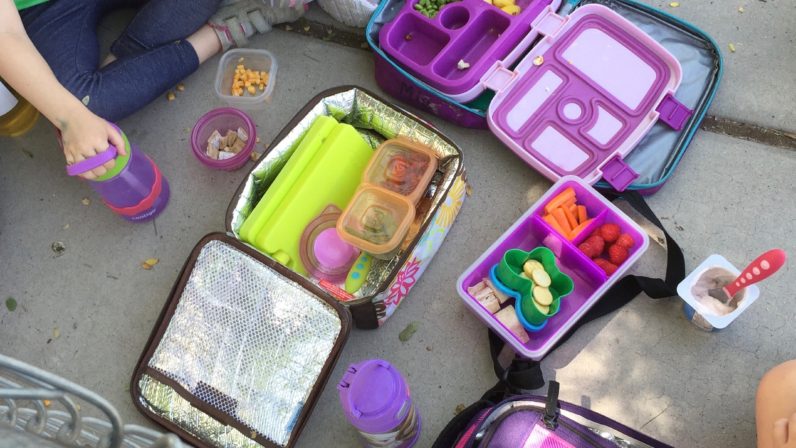One of the most important aspects of our work with children is giving them language to be successful in their daily lives. With toddlers, teachers model language for sharing, taking turns, and expressing what they need. At this level, the staff are doing most of the talking. The children hear this kind of language over and over, until one day, when they become a bit older, they are able to actually produce the words themselves. It’s music to our ears when we hear a young preschooler say, “I don’t like it when you take my toy!”
We use the Love and Logic approach school wide, and even offer trainings to parents so they’ll use the same phrases and techniques at home. We teach them to use phrases like “walking feet” instead of “stop running,” so children will hear what we want them to do. We model statements like “It’s time to clean up. Do you want to pick up the cars or blocks first?” instead of “Can you clean up your toys now?” As a staff we offer guidance about what choices are appropriate. How to use language in effective ways is a constant process for us.
I was reading through websites about food the other day and came across an excellent document about helpful language with food. It offers phrases that help foster positive relationships with food. For example, instead of saying, “No dessert until you eat your vegetables,” or “Stop crying and I will give you a cookie,” it is suggested to try something like this: “We can try these vegetables again another time. Next time would you like them raw instead of cooked?” “I’m sorry you are sad. Come here and let me give you a big hug.”
If you face challenges with helping your child develop a healthy relationship with food, I recommend you check out this document. It’s right in line with our approach to language and learning. And let us know how it’s going.
https://choosemyplate-prod.azureedge.net/sites/default/files/audiences/PhrasesThatHelpAndHinder.pdf

